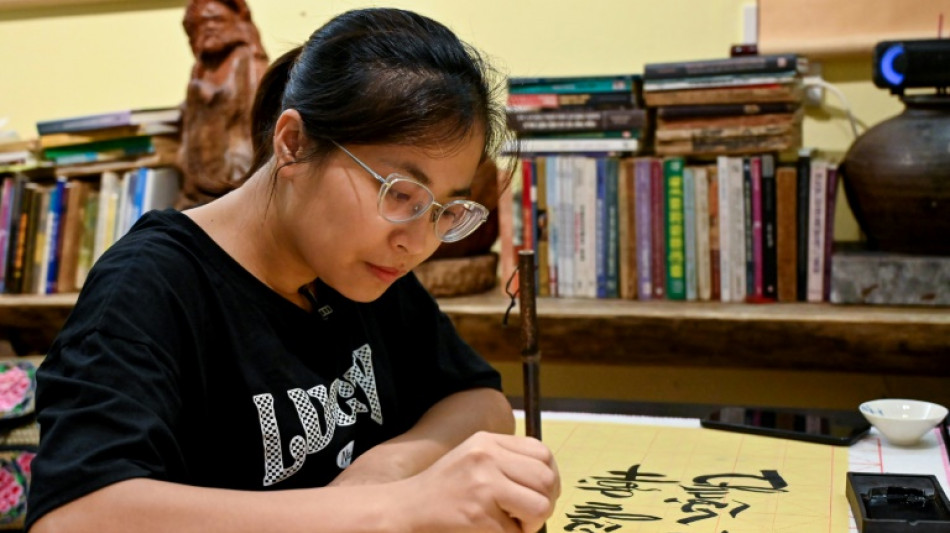
-
 Sean Combs, incarcerated music titan with a shattered reputation
Sean Combs, incarcerated music titan with a shattered reputation
-
Trump says Hamas ready for peace, tells Israel to stop bombing Gaza
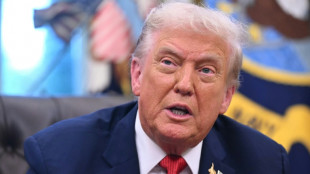
-
 Hamas says ready for peace talks, Trump urges Israel to halt bombing
Hamas says ready for peace talks, Trump urges Israel to halt bombing
-
Caipirinhas cancelled: Brazil on alert over deadly drinks
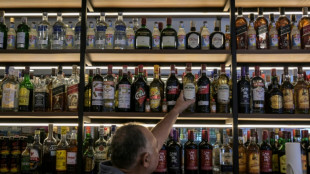
-
 'Nervous, grateful' Ohtani poised for long awaited MLB playoff pitching start
'Nervous, grateful' Ohtani poised for long awaited MLB playoff pitching start
-
Hamas says ready to free hostages, Trump urges Israel to halt bombing

-
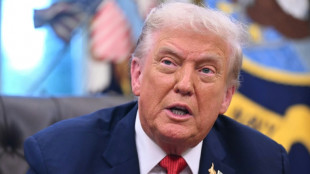 Trump says Hamas ready for peace, tells Israel to stop bombing
Trump says Hamas ready for peace, tells Israel to stop bombing
-
UK synagogue attacker: Briton of Syrian descent

-
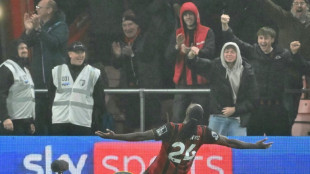 Semenyo double fires Bournemouth up to second in Premier League
Semenyo double fires Bournemouth up to second in Premier League
-
Swiss solar furnaces recycling watchmakers' waste metal
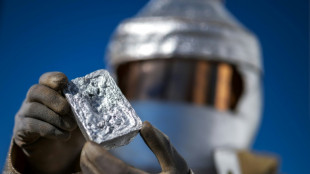
-
 Music mogul Sean 'Diddy' Combs sentenced to more than four years in prison
Music mogul Sean 'Diddy' Combs sentenced to more than four years in prison
-
Taylor Swift breaks streaming record with new 'Showgirl' album
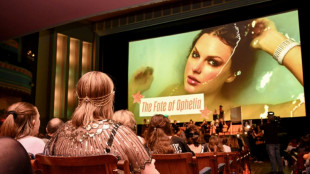
-
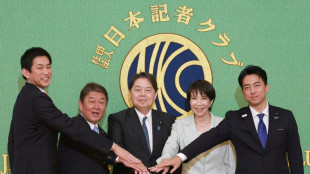 Japan's bruised ruling party to pick yet another leader
Japan's bruised ruling party to pick yet another leader
-
WADA grants Kenya reprieve from doping sanctions, citing 'progress'
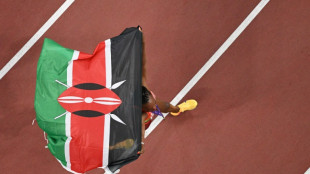
-
 US government shutdown to drag into next week
US government shutdown to drag into next week
-
Madagascar's president denounces 'coup' attempt as protests flare
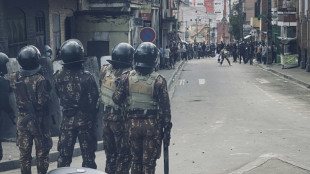
-
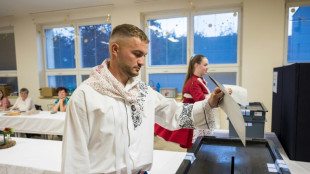 Czechs vote in two-day election with billionaire ex-premier tipped to come first
Czechs vote in two-day election with billionaire ex-premier tipped to come first
-
Ryder Cup winner MacIntyre shares lead at Alfred Dunhill Links

-
 UK police say accidentally shot synagogue attack victim who died
UK police say accidentally shot synagogue attack victim who died
-
Flower replaces Langer as London Spirit coach

-
 AI in an 'industrial bubble' but will benefit society: Bezos
AI in an 'industrial bubble' but will benefit society: Bezos
-
Cuban opposition leader Ferrer announces exile after prison 'torture'

-
 Mass protests, strikes in Italy for Gaza
Mass protests, strikes in Italy for Gaza
-
Sean 'Diddy' Combs sentencing hearing underway

-
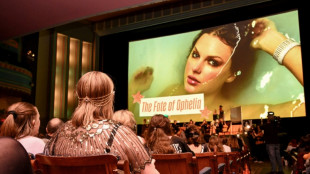 Taylor Swift strides into 'Showgirl' era with new joyful album
Taylor Swift strides into 'Showgirl' era with new joyful album
-
Yamal to miss Spain's World Cup qualifiers with injury

-
 Hoist the jolly manga: Gen Z protesters rally to One Piece pirate flag
Hoist the jolly manga: Gen Z protesters rally to One Piece pirate flag
-
First wolf-dog hybrid confirmed in Greece

-
 Postecoglou has faith Forest will turn corner after sack chants
Postecoglou has faith Forest will turn corner after sack chants
-
Arsenal must find next level to win trophies: Arteta

-
 Trump gives Hamas until 2200 GMT Sunday to agree to Gaza deal
Trump gives Hamas until 2200 GMT Sunday to agree to Gaza deal
-
UK police 'may' have shot victim killed in synagogue attack

-
 Piastri sets pace in chaotic Singapore second practice
Piastri sets pace in chaotic Singapore second practice
-
Future king Prince William says 'change on agenda'

-
 Man Utd need action, not words: Amorim
Man Utd need action, not words: Amorim
-
Italy-Libya migration pact under scrutiny as bullets fly

-
 Antony felt 'lack of respect' during Man Utd exit
Antony felt 'lack of respect' during Man Utd exit
-
Horner 'ringing up every team owner' as he plots F1 return

-
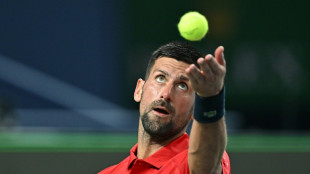 'Suffering' Djokovic battles past Cilic in Shanghai opener
'Suffering' Djokovic battles past Cilic in Shanghai opener
-
'First of its kind' power surge behind Iberia blackout: experts
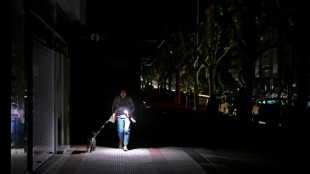
-
 South Africa's Kolisi wary of Argentina 'fight' in Rugby Championship finale
South Africa's Kolisi wary of Argentina 'fight' in Rugby Championship finale
-
Men killed in UK synagogue attack were known for generosity, jokes

-
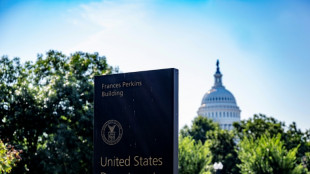 US delays key jobs report due to government shutdown
US delays key jobs report due to government shutdown
-
US government shutdown seen dragging into next week

-
 England thrash South Africa by 10 wickets at Women's World Cup
England thrash South Africa by 10 wickets at Women's World Cup
-
Hong Kong to install surveillance cameras with AI facial recognition
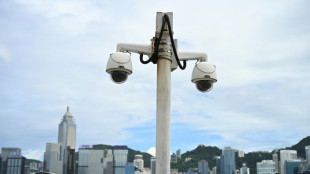
-
 Spain coach dismisses spat with Flick over Yamal injury
Spain coach dismisses spat with Flick over Yamal injury
-
Madagascar's president denounces 'coup' attempt in day of fresh protests
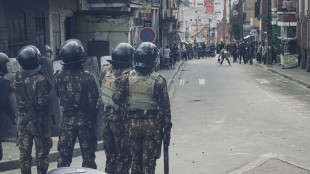
-
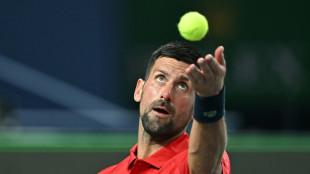 'Suffering' Djokovic fights past Cilic in Shanghai opener
'Suffering' Djokovic fights past Cilic in Shanghai opener
-
Pegula fights past Navarro for Noskova semi-final in Beijing


'It's in our blood': how Vietnam adopted the Latin alphabet
At a calligraphy class in Hanoi, Hoang Thi Thanh Huyen slides her brush across the page to form the letters and tonal marks of Vietnam's unique modern script, in part a legacy of French colonial rule.
The history of romanised Vietnamese, or "Quoc Ngu", links the arrival of the first Christian missionaries, colonisation by the French and the rise to power of the Communist Party.
It is now reflected in the country's "bamboo diplomacy" approach of seeking strength through flexibility, or looking to stay on good terms with the world's major powers.
A month after China's Xi Jinping visited, French President Emmanuel Macron will arrive on Sunday.
Huyen, 35, takes weekly calligraphy classes alongside six others at her teacher's tiny home as "a way to relax after work".
"When I do calligraphy, I feel like I'm talking to my inner self," she told AFP, her head bent in concentration.
- Missionaries, civil servants -
On Monday, Macron is due to visit Hanoi's star attraction, the Temple of Literature, whose walls and explanatory panels are decorated with calligraphy in both traditional Chinese-influenced characters and Quoc Ngu.
Colonisation led to the widespread use of Quoc Ngu -- which uses accents and signs to reflect the consonants, vowels, and tones of Vietnamese -- but it was created two centuries earlier on the initiative of Catholic priests.
When the Avignon-born Jesuit Alexandre de Rhodes published the first Portuguese-Vietnamese-Latin dictionary under his own name in 1651, it was primarily intended for missionaries wishing to spread their religion in what was then called "Dai Viet".
The French then spread the Latin alphabet while training the civil servants who helped them govern Indochina, explained Khanh-Minh Bui, a doctoral student at the University of California, Berkeley, specialising in 19th- and 20th-century Vietnamese history.
Another motive was "severing connections with an older civilisation, which has greatly influenced the elites", in this case China, she said.
- Artistic freedom -
Compared to the characters that had been in use for centuries, Quoc Ngu was far easier to learn.
Its adoption fuelled an explosion in newspapers and publishing which helped spread anti-colonial ideas that ultimately led to the rise of the Communist Party.
"Quoc Ngu carried the promise of a new education, a new way of thinking," said Minh.
When Ho Chi Minh proclaimed independence in 1945, it was "unthinkable" to turn back the clock, she added.
Today, a Western tourist lost in the alleys of Hanoi can read the street names, but would have a hard time pronouncing them correctly without understanding the diacritics used to transcribe the six tones of Vietnamese.
Calligraphy teacher Nguyen Thanh Tung, who has several young students in his class, says he has noticed rising interest in traditional Vietnamese culture.
"I believe that it's in our blood, a gene that flows in every Vietnamese person, to love their traditional culture," he said.
Calligraphy in Quoc Ngu offers more artistic freedom "in terms of colour, shape, idea" than that using characters, he believes.
"Culture is not the property of one country, it's an exchange between regions," added Tung, 38.
"English and French borrow words from other languages, and it's the same for Vietnamese."
G.Frei--VB

